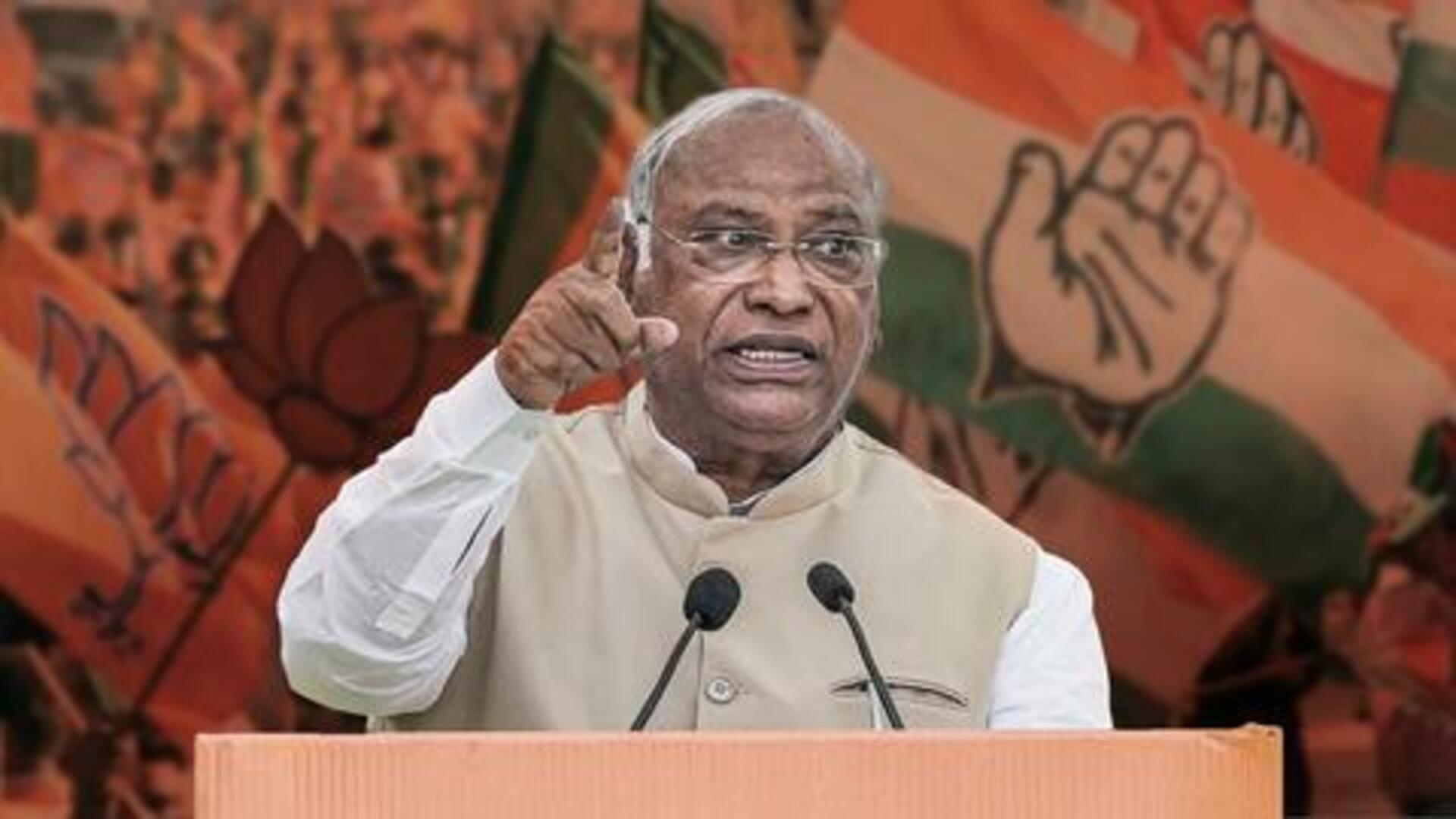
Kharge slams SBI's plea seeking time for electoral bond data
What's the story
Congress President Mallikarjun Kharge on Tuesday accused Prime Minister Narendra Modi's government of using the State Bank of India (SBI) to hide its alleged "dubious dealings" concerning electoral bonds. This follows the SBI's appeal to the Supreme Court for an extension to reveal electoral bond information. Terming the electoral bond scheme as non-transparent and undemocratic, Kharge said, "The Modi government is using the largest bank in our country as a shield to hide its dubious dealings through electoral bonds."
Context
Why does this story matter?
On Monday, the SBI asked the Supreme Court to extend the deadline to June 30 to submit information regarding electoral bonds to the Election Commission of India (ECI). This request came after the Supreme Court's recent landmark decision declaring the electoral bonds scheme unconstitutional. At that time, the top court ordered the SBI to provide the information to the ECI by Wednesday (March 6).
Kharge's statement
Congress questions SBI's appeal for extension
Kharge questioned why the SBI needed an additional four months to gather information on electoral bonds. Experts claim the 44,434 automated donor data entries can be revealed within just 24 hours, he said. Kharge added that the BJP wants the SBI to disclose the details only after the Lok Sabha elections. The Congress president alleged that the Modi government has "bulldozed" every institution, including the Reserve Bank of India, the ECI, Parliament, and the opposition, to fill the BJP's coffers.
Twitter Post
Read: Congress leader Manish Tewari's statement here
Supreme Court should not allow @TheOfficialSBI to get away with its chicanery on Electoral Bonds .
— Manish Tewari (@ManishTewari) March 5, 2024
People before the General Elections must know who got what from whom & whether there was any prima-facie quid pro quo involved?
SC must order lifting of the corporate veil of…
Plea in court
SBI cites donor anonymity as reason for delay
Earlier, the SBI explained in its appeal that donations were kept anonymous and retrieving information was a lengthy process. "It is submitted that the data related to the issuance of the bond and the data related to the redemption of the bond was kept recorded in two different silos," it said. "No central database was maintained. This was done to ensure that donors' anonymity would be protected," the bank added.
SC ruling
ECI asked to publish information on website by March 13
During the pronouncement of the electoral bond judgment, Chief Justice of India (CJI) DY Chandrachud stated that the scheme could result in a quid pro quo relationship between political parties and donors. The court determined that the goals of fighting black money and protecting donor confidentiality could not justify the electoral bonds scheme. According to the SC's directive, the ECI must publish the information received by the SBI on its website by March 13.
Background
What are electoral bonds?
Electoral bonds are a means for anonymous Indian citizens/corporations to donate money to political parties. These bonds are available in multiples of Rs. 1,000, Rs. 10,000, Rs. 1 lakh, Rs. 10 lakh, and Rs. 1 crore and can be purchased at approved SBI offices. The donor could give these bonds to a party or parties of their choice, which could opt to cash in such bonds within 15 days. This approach ensured that the donor's name remained anonymous.
Data decoded
Electoral bonds' share in political funding
From March 2018 to July 2023, electoral bonds facilitated the transfer of Rs. 13,000 crore to various political parties. Data released by the ECI in January 2023 showed that four national political parties, the BJP, Trinamool Congress (TMC), Congress, and Nationalist Congress Party (NCP), received 55.09% (Rs. 1,811.94 crore) of their total income through electoral bonds in 2021-22 alone. The BJP obtained the majority of these donations, followed by the TMC and the Congress.